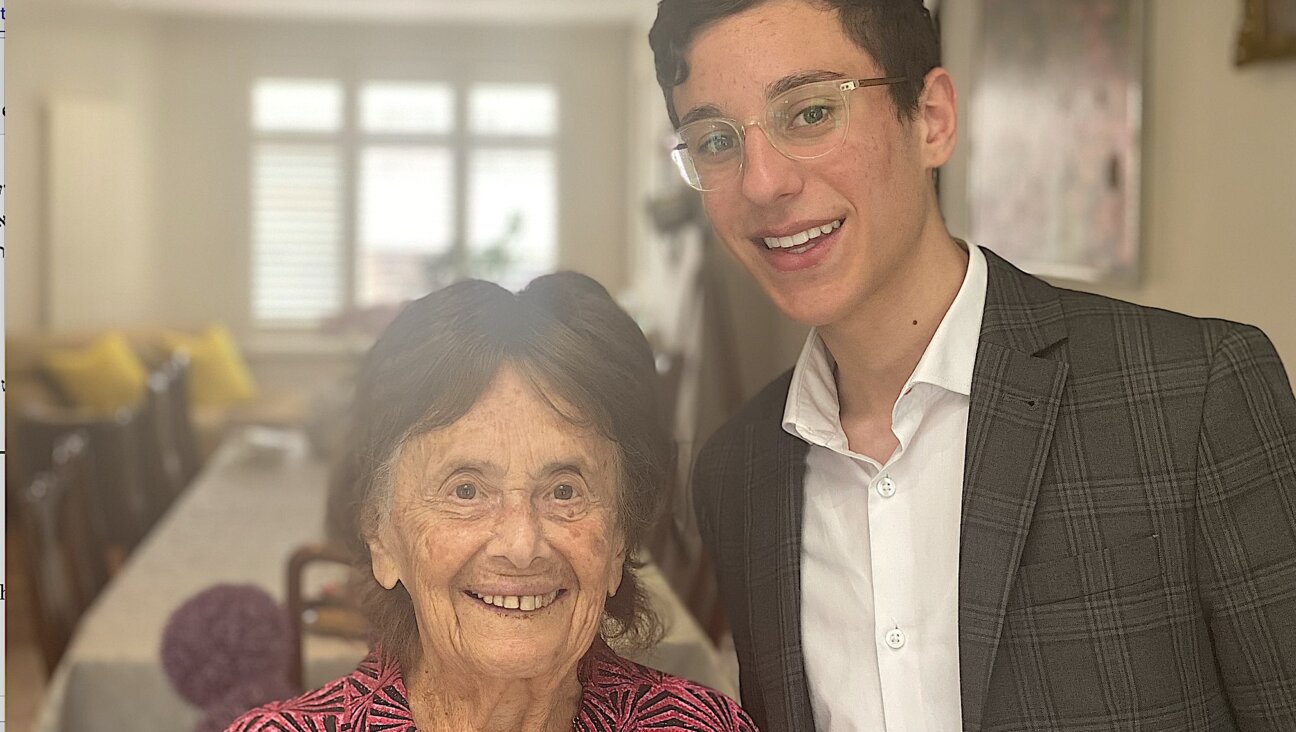Israeli-Palestinian ‘Odd Couple’ Tackles the Conflict — and the Dishes
Though Israeli Edward (Edy) Kaufman and Palestinian Manuel Hassassian teach a summer course together at the University of Maryland on the Israeli-Palestinian conflict, their discussions rarely end when the class bell rings. Often they will continue on through the dinner hour at the house the two share near campus — as part of a long-running experiment in coexistence and cooperation both inside and outside the classroom.
Almost every summer for the past 12 years, Kaufman, a research associate at the university’s Center for International Development and Conflict Management and a former director of the Truman Peace Institute at The Hebrew University, and Hassassian, a onetime rector of Bethlehem University and the Palestinian ambassador to the United Kingdom, have moved in together for six weeks and have shared not only a home but also a classroom, an office and even a cell phone.
“We agree about many things, disagree about others,” Kaufman said. “But we begin with a deep, mutual respect, and we bring that to the classroom.” The two professors spoke with the Shmooze this week from their shared office as they worked to finish a lesson plan for a class on Israel’s 1948 War of Independence — no mean feat, considering how even the most basic terms involved have a political charge.
Both Kaufman and Hassassian hope to challenge the “preconceived narratives” their students may have in regard to the Middle East. “When it comes to the diagnosis of the problem and solutions, we are really not that far away,” Hassassian said. “Students may expect our class to look like the coliseum — a lot of butting heads and arguing — but it is more about the learning process than debate.”
Kaufman agreed, suggesting that the hours spent outside of the classroom debating potentially divisive issues make in-class discussion that much more productive. “It’s good therapy for us, too,” he said.
The two Middle East scholars first met in 1988 at the Palestinian School for International Relations in East Jerusalem. They then came together again when Hassassian arrived at the university in 1994 to lead a course with his Israeli counterpart. He took a room in the campus dormitory. “It was a miserable place,” Kaufman said, “so I thought he should move in with my wife and me.” And their door has been open to Hassassian ever since.
While the pair expressed dismay at the current round of violence engulfing the region, they hope that their example of longstanding collaboration — both personal and professional — can be an example for current leadership in the Middle East.
“Ehud Barak and Yasser Arafat never had quality time with one another. They never even met alone at Camp David,” Kaufman said, referring to the failed round of negotiations at the presidential retreat in 2000. ”We believe that spending time together is ultimately a key part in resolving the conflict.”





















